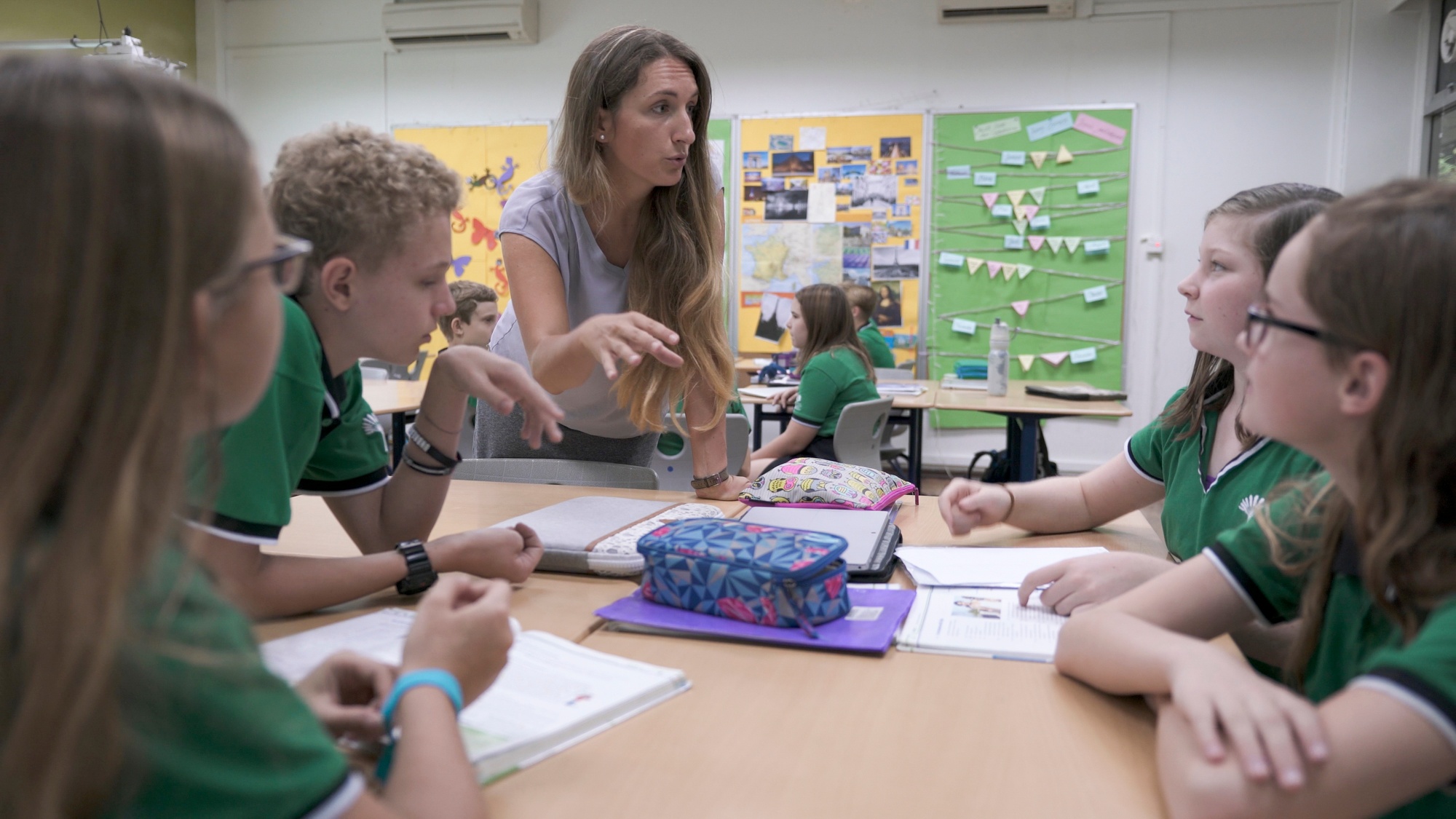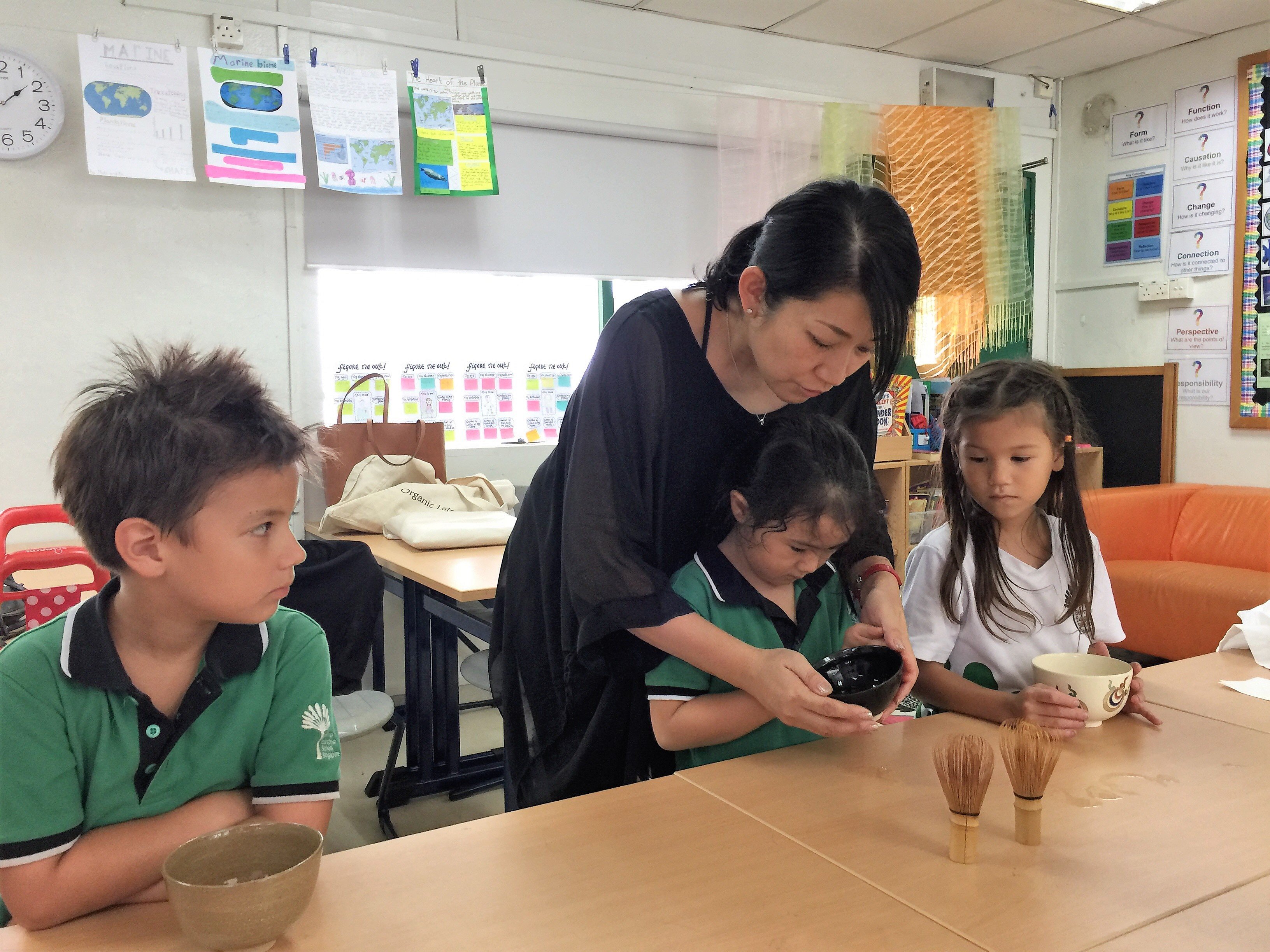Finding the right school could mean so much for a child’s development and education milestones and most parents don’t take this decision lightly. But for expat parents in Singapore, the decision-making process is a little more complex as they are faced with an internationally-lauded local education system and a thriving international school scene.
What better way to deal with the dilemma than to find out what are some of the key features of an international school?

curriculum options
Most international schools in Singapore can be classified into those which offer
(1) The national curriculum (e.g. IGCSE, French National Curriculum, German Abitur) of a country they might be affiliated to,
(2) An international curriculum such as the renowned International Baccalaureate (IB) programme (find out "5 Reasons Why Expat Parents Love the IB Programme") or
(3) A choice between a national curriculum and an international curriculum
Oftentimes, the curriculum is adapted to be relevant to the experiences of a very diverse and international student population
Language of instruction
The language of instruction in most international schools tends to be English but this can differ based on the curriculum on offer. For instance, most International Baccalaureate programmes in Singapore are delivered in English while there are some national curricula such as the German curriculum that is naturally taught in German.
However, granted that students in international schools often have varying levels of English language proficiency, these schools often tend to be more conscious and accommodating of that. International schools are more likely to offer English as an Additional Language (EAL) support lessons with specialist teachers in small, targeted groups.
This can be indispensable to students who are not fluent in English and struggle to keep up with lessons due to language limitations.
home languages
There is a higher likelihood of an international school offering mother tongue language support for your home language than the local schools.
Oftentimes, this could come in the form of mother tongue lessons incorporated in the curriculum, a variety of language enrichment programmes outside of curriculum time or even support to find a qualified and recognized external tutor who might be able to help your child maintain a connection with the mother tongue language within the parameters and objectives of the curriculum your child is in.
For instance, at GESS, an international school with over 65 nationalities, students have the option to learn Danish and Dutch as part of the curriculum while also being able to enrich their competency in languages like Japanese, Mandarin, Spanish etc. through an after-school language enrichment programme.

educators' profile
The educators at an international school tend to have very diverse origins, mirroring the cultural diversity within the student population as well.
A well-established international school will often place adequate emphasis on ensuring that their staff are not just well-trained pedagogically but also have strong cultural sensibilities, are tuned into the unique needs of Third Culture Kids, have expertise in helping expat children transition between schools, cultures and countries.
Staff will also be better able to capitalize on the students’ international exposure to groom them to become global citizens.
school calendar
There are international schools in Singapore that follow the school calendar typical of the Southern Hemisphere (January to December) and those that follow the school calendar typical of the Northern Hemisphere (August to July).
This holds significance when transferring between schools as it determines which grade a child would qualify for and how much time will have to be lost.
admissions and enrolment
As families might have to relocate at any time of the year, international schools tend to be more open to accepting students on an ongoing basis and at short notice. They also tend to have stronger measures in place to help students make a smooth transition to the school without too much disruption.
Learn more about the "Admissions Process for International Schools in Singapore".

